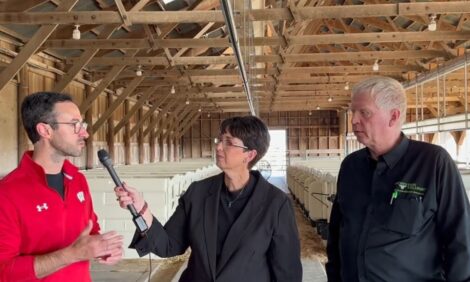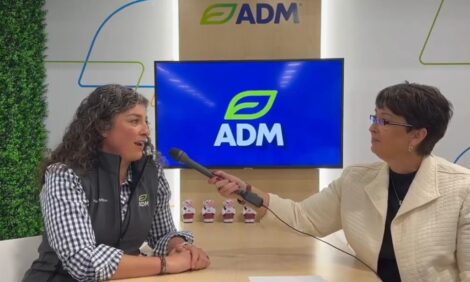



France Sets New Course for Agriculture
FRANCE - After 50 years of the Common Agricultural Policy (CAP), French farm minister Stéphane Le Foll is setting aside France's postwar productiviste past as he prepares to turn the country into a European leader for agroecology, writes Peter Crosskey.Speaking at the opening of the recent Salon International de l'Agriculture (SIA) in Paris, which also celebrated a half century this year, he described agriculture as: "...the heart of French countryside which pulses through the territories. Every day I observe the extent to which it is the central activity of our regions, 10 per cent, 20 per cent or 30 per cent of the regional economies: it is something that we must protect and promote."
France faced challenges, but the minister places agriculture: "...at the heart of society," too. He added that it is at a turning point for two major issues: preserving environmental resources and feeding a planet inhabited by nine billion people, where one billion women, men and children already go hungry.
"Agriculture is at the heart of the drive for [France's] productive revival, due to its formidable capacity to generate growth and jobs on territory that has been underused in recent years."
However, this is not a call for the return to the early years of the CAP, remembered fondly by former generations as the "trente glorieuses." Le Foll (pictured) is preparing a new law for the future of agriculture (Loi pour l'Avenir de l'Agriculture or LAA) that will help to reduce the environmental impact of French agriculture.
Back in December, he fielded a question from journalists, saying: "Yes, yet another agriculture law, as you say, because we need change."
Agroecology is the watchword for the new policy: "I'll say it again," the minister told the country's agriculture sector at SIA: "[It means] producing as much with less fuel, less spraying and less [artificial] fertiliser, relying on the rich resources of the natural world, is more profitable for farmers and better for the environment." The minister also hopes that the next CAP will render European agriculture fairer and generate employment, "particularly for the livestock sector."
The official adoption of agroecology was launched in earnest with a website [backlink: http://agriculture.gouv.fr/Produisons-autrement] and a national conference in December. The policy is a forward-looking one and the call to action in the policy is to do things autrement (in other ways).
This was the watchword that punctuated the ministry's presence at SIA. Just days into the show, farm minister Le Foll and food minister Guillaume Garot signed a three-year collective agreement that is expected to bring up to 750 tonnes of renewably-sourced omega 3 fatty acids into the French human food supply. This is equivalent to the daily requirements of one million consumers (official RDI 2.2g/day/capita, according to ANSES).
The sectorial partner for this landmark agreement is the all-industry association Bleu Blanc Coeur, whose membership covers farmers growing omega 3-rich forage crops like flax seed; livestock producers, whose animals benefit from French-grown animal vegetable proteins; food manufacturers who work with the upstream BBCoeur members for products in their range and retailers who promote and sell these products to consumers. Formed in 2000, the BBCoeur association has been committed to France's national nutrition and health programme (PNNS) since its beginnings in 2001.
The agreement confers official recognition for the aims of BBCoeur's members, who collectively will ensure that 22,000 hectares of flax; 12,000 hectares of alfalfa grassland and 18,000 hectares of vegetable protein crops will be re-integrated into the French countryside.
"The intention is to build virtuous cycles," BBCoeur co-president Dr Bernard Schmitt explained at the signing in Paris.
Schmitt represents the scientific branch of the BBCoeur project and was a moving force behind an earlier PNNS protocol in 2008 which established the association's scientific credentials.
Between now and 2016, BBCoeur will be saving the equivalent of 231,000 tonnes of carbon dioxide in ruminant emissions, on the basis of a methodology agreed with the French government and the United Nations. The BBCoeur livestock feeding regime will ensure that 64,700 tonnes of soya will not need to be imported from Latin America and that 160,000 tonnes of maize will be substituted by sustainable alternatives.
TheCattleSite News Desk


